10 of the best Australian observatories

1. Murchison Radio-astronomy Observatory
Western Australia
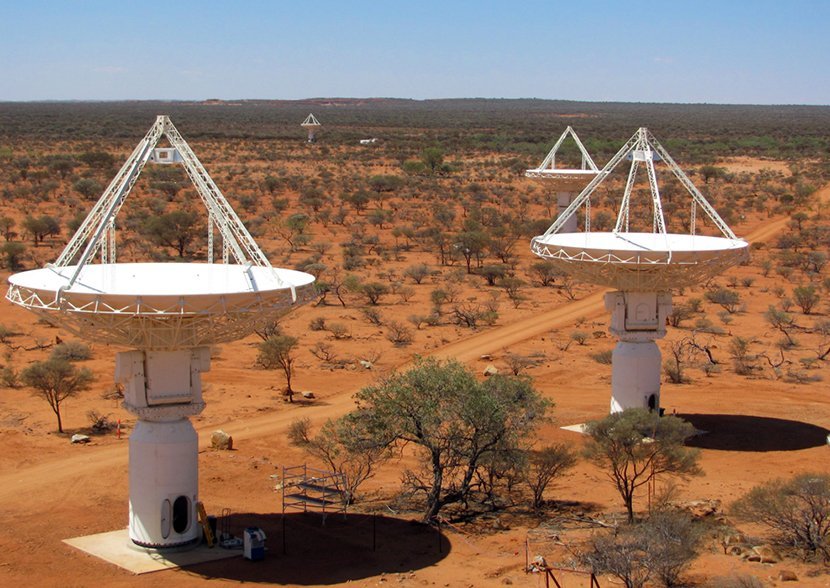
ASKAP antennas at the Murchison Radio-astronomy Observatory. (Image: CSIRO)
The Murchison Radio-astronomy Observatory, about 300km north-east of Geraldton, WA, is the home of the Australian SKA Pathfinder and the Murchison Widefield Array groups of radio telescopes. It will also shortly be the home of a significant part of the Square Kilometre Array, a radio telescope that will have a total collecting area of approximately one square kilometre (the other part will be in South Africa). When completed, the SKA will be 50 times more sensitive than any radio telescope in existence.
2. Siding Spring Observatory
New South Wales
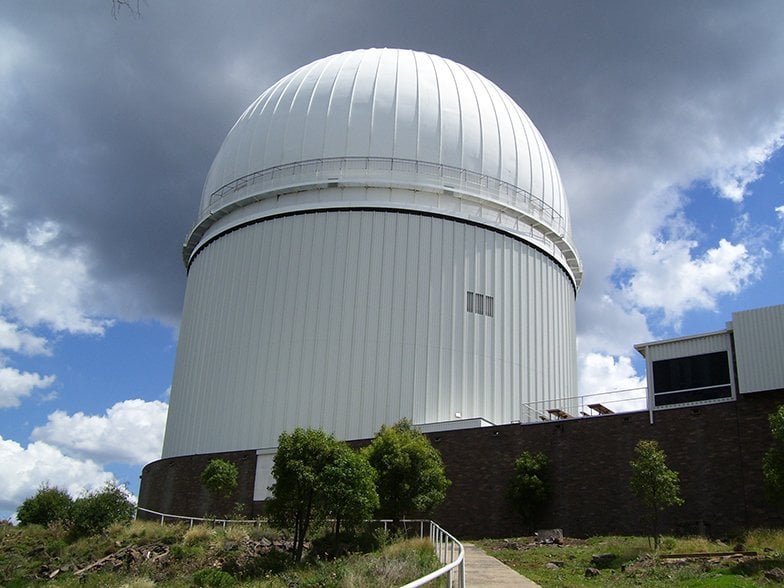
Image: Stephen West/Wikimedia
The Siding Spring Observatory at Coonabarabran, about 350km north-west of Sydney, became fully Australian owned in 2010 – it had begun in 1967 as a joint venture with the UK, and was the first major telescope in the Southern Hemisphere. The Anglo-Australian Telescope there has made significant contributions to the discovery of exoplanets (alien worlds orbiting other stars) and held the record for finding the farthest object known to man on a number of occasions.
3. Parkes Observatory
New South Wales
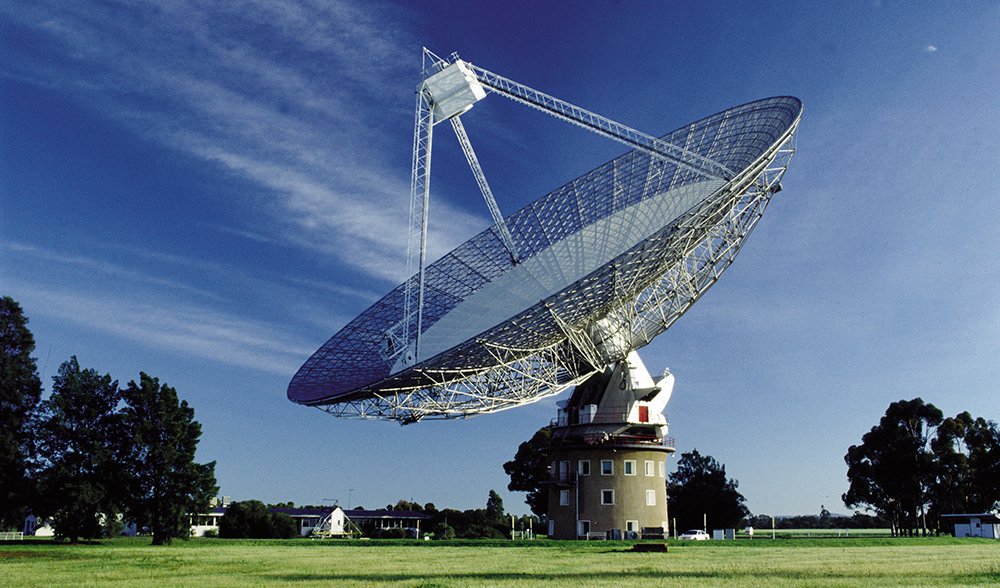
Parkes Radio Telescope. (Image: CSIRO)
The Parkes Observatory radio telescope, 300km west of Sydney, is affectionately known as ‘The Dish’ and is one of the largest radio telescopes in the Southern Hemisphere. It was used by NASA during the Apollo 11 Moon landing. The Dish became a household name when an Australian film of the same name was released in 2000.
4. Arkaroola Astronomical Observatory
South Australia
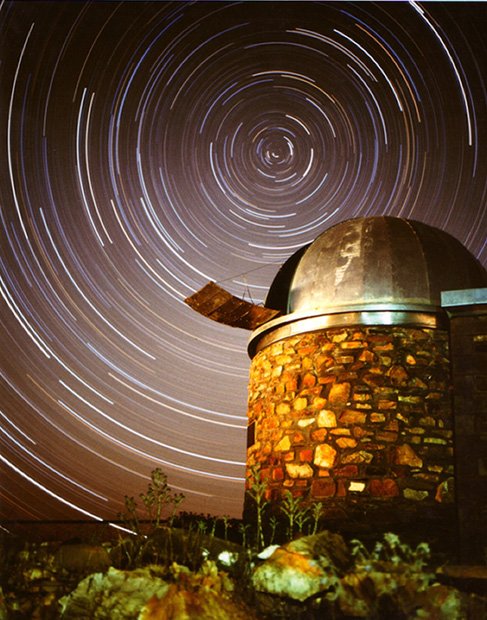
The Dodwell Observatory is named in honour of George Frederick Dodwell, the Government Astronomer of South Australia from 1909-1952.
Perched in the Flinders Ranges, 700km north of Adelaide, these three observatories – including two full-sized astronomical domes – claim some of Australia’s best viewing conditions. Two 14-inch telescopes are some of the largest privately owned telescopes in the Southern Hemisphere.
5. Sydney Observatory
New South Wales
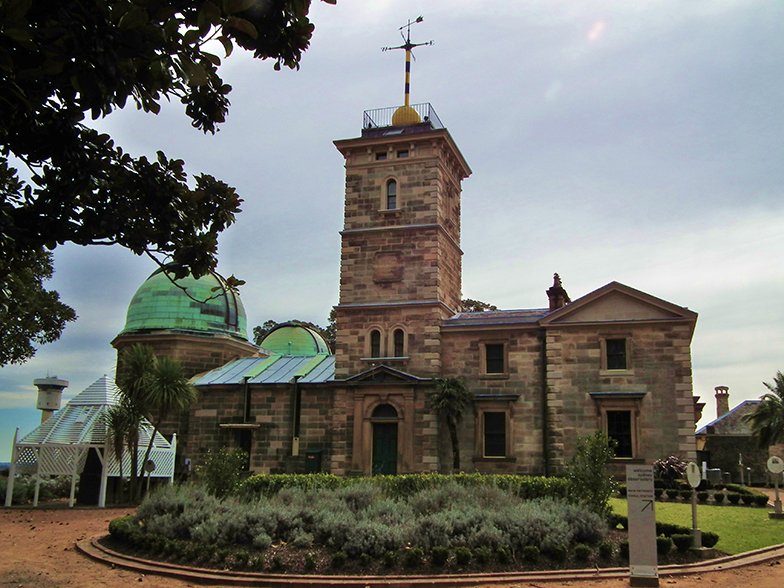
Image: sv1ambo/Wikimedia
Historic Sydney Observatory, built in 1858 on Observatory Hill in The Rocks, Sydney, is now a working museum where evening visitors can observe the stars and planets through a modern 40cm schmidt-cassegrain telescope and a historic 29cm refractor telescope (built in 1874). This is the oldest Australian telescope in regular use.
6. Mount Kent Observatory
Queensland
Located 30km south-west of Toowoomba, the University of Southern Queensland site includes three telescopes, which specialise in studying the influence of the Sun on climate here on Earth.
7. Paul Wild Observatory
New South Wales

Five antennas of the Australia Telescope Compact Array, near Narrabri, NSW. (Image: CSIRO)
Located 25km out of Narrabri, which is 420km north-west of Sydney, Paul Wild Observatory is home to one of the world’s most advanced radio telescopes – the Australia Telescope Compact Array. Belonging to the CSIRO the six 22m antennae observe star formation, the late stages of stars’ lives, supernovae and magnetic fields.
8. Mt Pleasant Radio Observatory
Tasmania
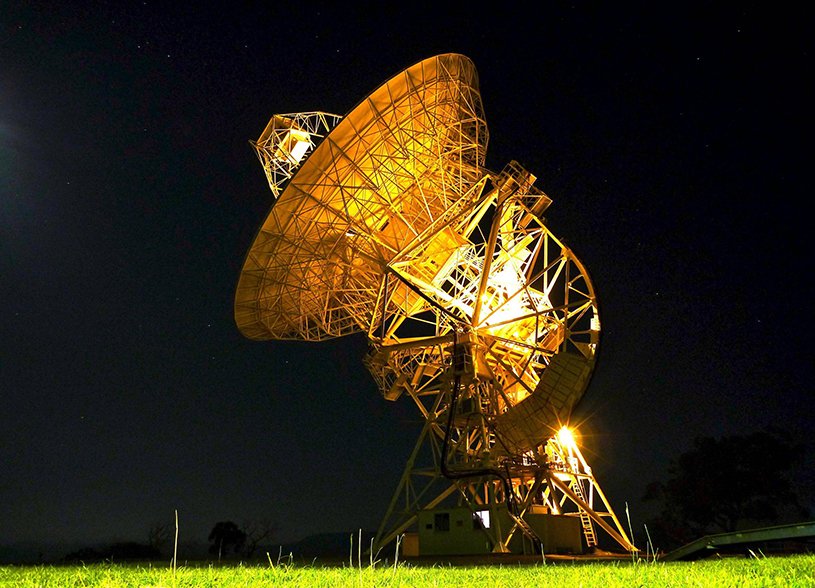
Mt Pleasant radio telescope. (Image: Danieljr1992 / Wikimedia)
Located 20km east of Hobart at Cambridge, Tasmania, the Mount Pleasant Radio Observatory has three radio telescopes: the Mount Pleasant 26m antenna, the 14m Vela Antenna and a 12m AuScope VLBI Antenna.
9. Gingin Observatory
Western Australia
About 60km north of Perth, GinGin Observatory houses five large telescopes, including the largest public access telescope in Australia. It is a small, privately-run operation, and rather than a dome Gingin has a big 7.5t roof that slides off limestone walls, allowing keen amateur astronomers access to the clear views offered in our remote west.
10. Mt Canopus Observatory
Tasmania
At Mt Canopus Observatory, 12km out of Hobart, is a small 1m telescope. Because of its high southern latitude it provides magnificent views of some of the Southern Hemisphere’s astronomical gems, the two Magellanic Clouds. The Magellanic Clouds have been known of since ancient times and are irregular dwarf galaxies orbiting the Milky Way.
READ MORE:
- Australia’s first Dark Sky Park named
- Australia’s top 10 botanic gardens
- Top 10 Australian outback towns to visit




